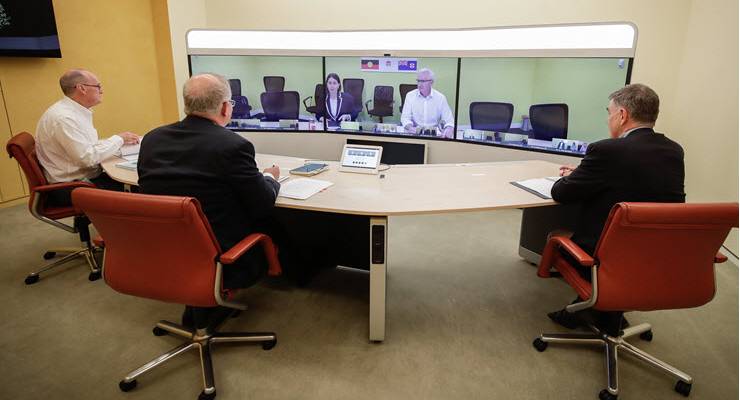
The national cabinet will tomorrow decide whether groups of up to 10 will be able to meet by Mother’s Day, experts warn suicide rates could spike, and a mutant strain of COVID-19 is spreading.
Mental health the next calamity
Suicide rates in Australia could increase by up to 50%, equating to an extra 1500 deaths per year over the next five years as the coronaviurs wreaks havoc on our economy and social systems.
The modelling, conducted by the University of Sydney’s Brain and Mind Centre and backed by the Australian Medical Association, also predicts unemployment, school dropouts and family crises could further affect the economy.
Mental health groups have been inundated with calls for help during COVID-19 with advocates calling for real-time data from first responders and police officers to create a national suicide register.
Mutant strain spreading
A new strain of the coronavirus responsible for the pandemic has been discovered, spreading faster and wider than the original one. This new strain could not only undermine immunity developed from recovering from the original virus but also impact vaccine development efforts.
The research was released online by scientists from the US and UK, though has yet to be peer reviewed. The genomes of 6000 were studied to discover the newer G-strain.
To ease or not to ease?
The national cabinet will meet tomorrow to discuss relaxing social restrictions across Australia as coronavirus cases decrease, with groups of up to 10 potentially able to meet in homes by Mother’s Day — though each state and territory will have to set its own rules.
The national cabinet will assess the health data from each stage after 14 days before deciding whether to move to the next.
NSW Premier Gladys Berejiklian has warned NSW is not likely to allow larger groups to gather, saying: “I doubt that NSW will be in a position to implement anything before Mother’s Day”.
The head of the World Health Organization (WHO) this morning warned easing restrictions too early and too quickly could lead to a second wave and lockdown if transitions are not managed carefully.








This 70 year old plus with “co-morbidities “will be very sad on Mothers Day not to see my darling son but I won’t because I don’t want to risk it. He is out in the world of work as is his wife. Asymptomatic carriers do exist.
I think Dan Andrews is right to take it slowly.